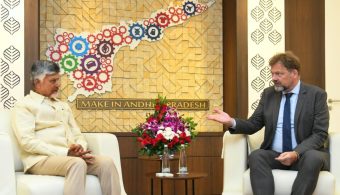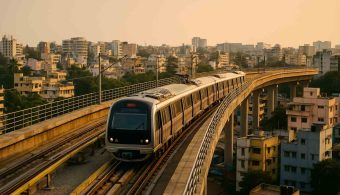Pictures’ Credit: x.com/narendramodi & x.com/GermanyinIndia
At the invitation of Prime Minister Narendra Modi, German Chancellor Olaf Scholz wrapped up a successful three-day visit to India from October 24-26, 2024. The visit featured the 7th Intergovernmental Consultations (IGC) co-chaired by the two leaders in New Delhi, highlighting the growing partnership between India and Germany across sectors like green technology, defense, and skilled labor migration.
Diplomatic Warmth and Strategic Conversations
Chancellor Scholz received a ceremonial welcome on October 24, with India’s Minister of State for Home Affairs, Nityanand Rai, greeting him at the airport. Modi warmly welcomed Scholz at his official residence the next morning setting the stage for what Scholz described as “critical and forward-looking conversations.”
“Welcomed my friend, Chancellor Scholz, to my residence in New Delhi.Glad to be meeting him and discussing a diverse range of issues that will add momentum to the India-Germany friendship. Our nations have a strong track record of developmental cooperation and we look forward to building on this in the times to come”, said PM Modi on social media platform X account.
Reverberating the sentiment, the German Chancellor also posted on his X account stating, “In this world we need friends and allies — just like India and Germany”. “Herzlich willkommen in Neu Delhi! (Welcome to New Delhi),” tweeted Randhir Jaiswal, spokesperson for the Indian Ministry of External Affairs. This visit marked Scholz’s third trip to India since taking office, following his bilateral visit in February 2023 and the G20 Summit in September 2023.












